In dieser Lektion
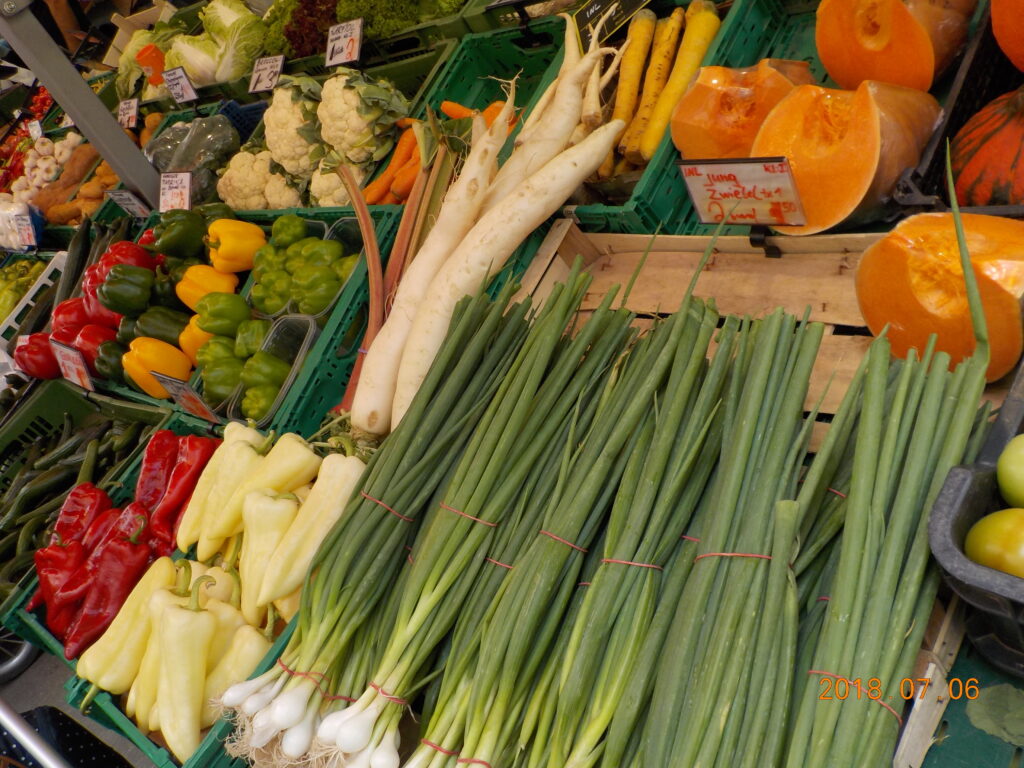
Schreiben
Einkaufen
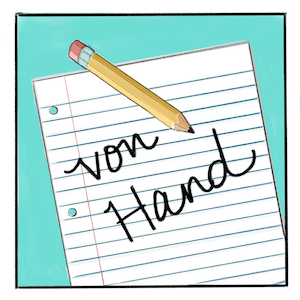 Sie kommen nach Wien und brauchen viele Sachen. In welche Geschäfte gehen Sie? Schreiben Sie eine Liste. Zusatz: Was kaufen Sie dort?
Sie kommen nach Wien und brauchen viele Sachen. In welche Geschäfte gehen Sie? Schreiben Sie eine Liste. Zusatz: Was kaufen Sie dort?
You come to Vienna and need a lot of stuff. Which stores do you go to? Make a list. Additional: What do you buy there?
| Geschäft | Produkt |
|---|---|
Strukturen
Komposita
Practice creating and identifying more compound nouns in the exercise below!
Verben
Practice using the verbs from this lesson!
Kultur
Zungenbrecher
“Zungenbrecher,” literally meaning tongue breaker, is the German word for a tongue-twister. The fun Zungenbrecher “Rhabarberbarbara” plays with the tendency in the German language to create long compound nouns that can be a mouthful to pronounce. The title, “Rhabarberbarbara,” refers to a woman named Barbara who bakes a mean rhubarb cake (“Rhabarber” means rhubarb).
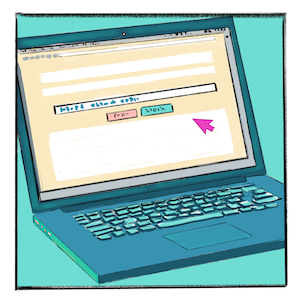 Do an internet search for the full text of “Rhabarberbarbara,” and see how many of the compound nouns you can break down and understand.
Do an internet search for the full text of “Rhabarberbarbara,” and see how many of the compound nouns you can break down and understand.
For more fun, try to read the words out loud!
For even more laughs, find and watch an animated video or a video of someone performing this silly Zungenbrecher!
Many German Zungenbrecher feature compound nouns. Some well-known examples feature words like “Froschforscher” (frog researcher), “Zahnarzt” (dentist; literally tooth doctor), “Dachdecker” (roofer; literally roof-coverer), “Bierbrauerburschen” (beer-brewing boys), “Zwetschkenbaumzweige” (plum tree branches), and “Streichholzschächtelchen” (little matchbooks; literally little boxes of striking wood). Find some of these online and see how quickly you can decode their meanings and pronounce them correctly!
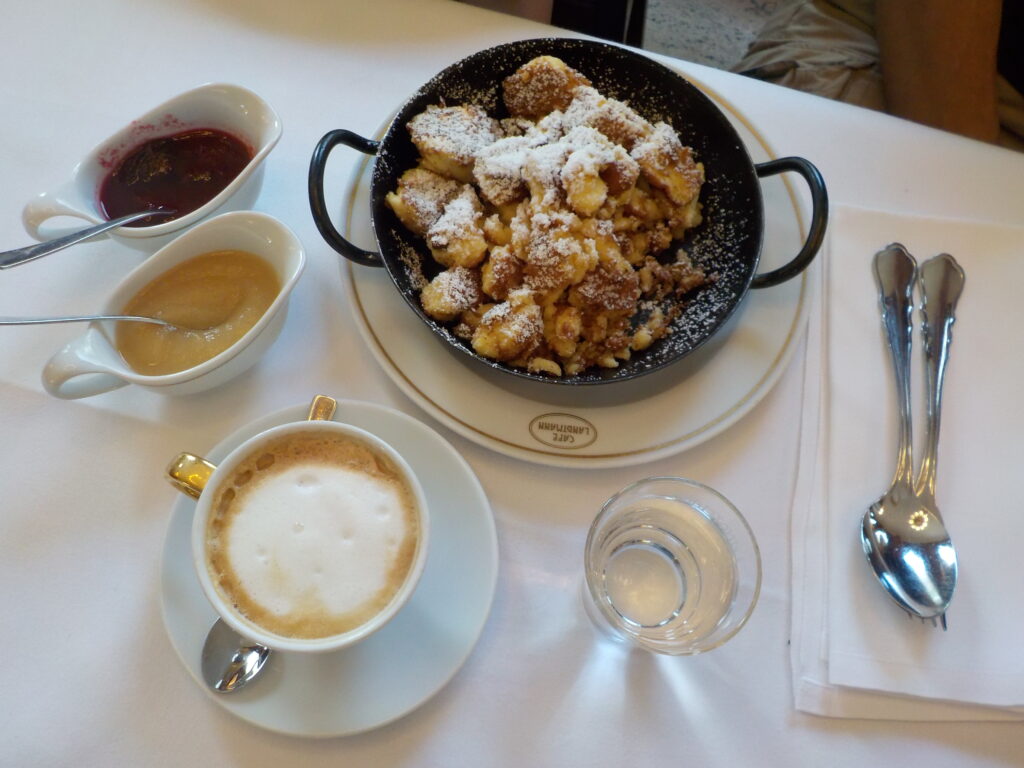
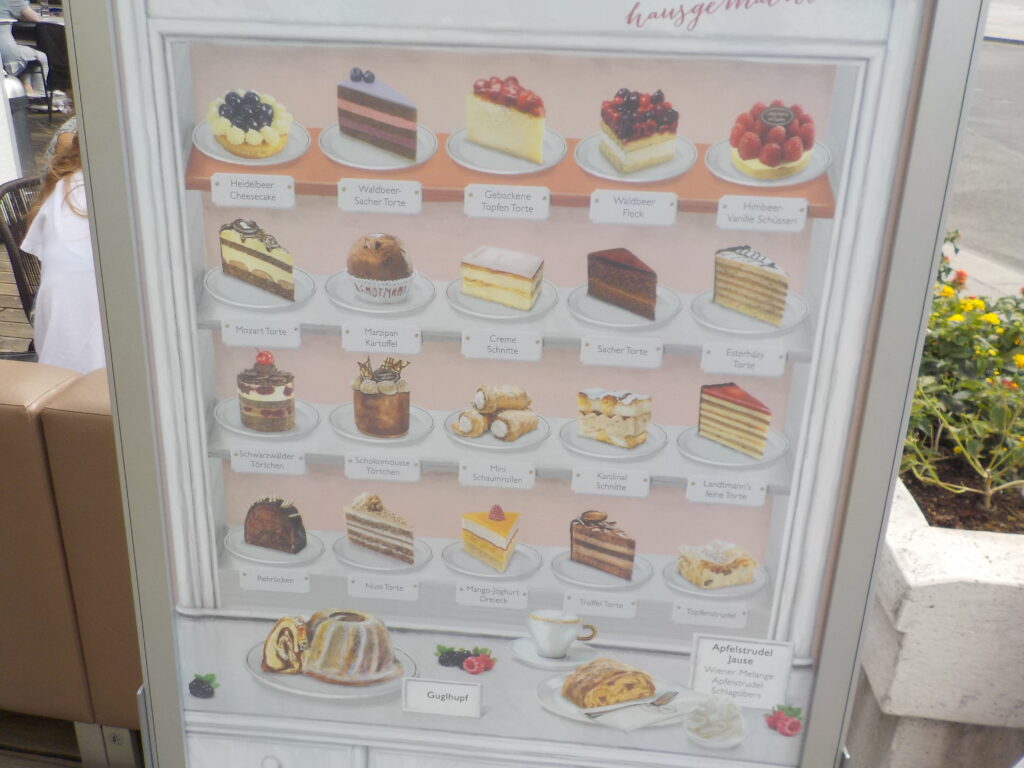
Österreichische Mehlspeisen
The word “Mehlspeise,” roughly translating to pastry or dessert, literally means dish containing flour. Austria is renowned for its sweet, flour-based pastries and desserts, which include the world-famous specialty Sacher-Torte made only by Vienna’s Hotel Sacher, which is mentioned in Fatma’s dialogue with a vendor at the beginning of Lektion 1, “Geschäfte und der Markt.” Other Austrian Mehlspeisen include Linzer Torte, Apfelstrudel, and Kaiserschmarrn, just to name a few.
 Do some research on the internet about Austrian Mehlspeisen and see how many specialties you can identify. Which ones would you like to try? Where would you be likely to find them? Bring in picture to share with the class.
Do some research on the internet about Austrian Mehlspeisen and see how many specialties you can identify. Which ones would you like to try? Where would you be likely to find them? Bring in picture to share with the class.
Strukturen
Wortschatz
Nouns
General Store Names: These general words for stores can be combined with noun prefixes describing what they sell:
das Geschäft, ein Geschäft, zwei Geschäfte (das Schuhgeschäft; das Käsegeschäft; …)
der Laden, ein Laden, zwei Läden (der Weinladen; der Feinkostladen; …)
der Markt, ein Markt, zwei Märkte (der Blumenmarkt; der Flohmarkt; …)
Similarly, the word for a stand can be combined with a noun prefix describing what it sells:
der Stand, ein Stand, zwei Stände (der Marktstand; der Obststand; der Weinstand; …)
Specific Stores
die Apotheke
die Bäckerei
das Blumengeschäft
die Buchhandlung
die Eisdiele
der Feinkostladen
der Käseladen
die Konditorei
die Metzgerei (auch: die Fleischerei)
der Schuhladen / das Schuhgeschäft
der Supermarkt
der Tabak / die Trafik
das Weingeschäft
Verbs
gehen
kaufen (einkaufen)
kommen
Other Useful Words & Phrases
Greetings & Farewells
auf Wiederschauen
auf Wiedersehen
bis bald
bis dann
bis später
ciao
grüß dich
grüß Gott
guten Abend
guten Morgen
gute Nacht
guten Tag
hallo
servus
tschüss (auch: tschüs)
Polite Words
bitte (auch: bitte sehr; bitte schön)
danke (auch: danke sehr; danke schön)
gern; gerne
gern geschehen